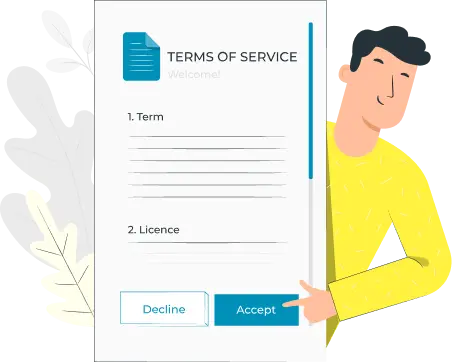DEIB stands for Diversity, Equity, Inclusion, and Belonging, four pillars essential to creating a positive and thriving work environment. Together, these four elements form the foundation of a workplace that not only attracts top talent but also promotes higher engagement, innovation, and productivity.
Embracing DEIB in the workplace is no longer optional. It’s a strategic imperative that impacts a company’s success and ability to compete in a global market. Below are some of the key reasons why DEIB should be a priority for employers:
In today’s diverse workforce, potential employees look for companies that align with their values. Businesses that promote DEIB initiatives are more likely to attract and retain top talent from various backgrounds. When employees feel a sense of belonging and inclusion, they are more engaged and committed to the organization. This can also lead to lower turnover rates, as employees are less likely to leave a company where they feel valued and understood.
A diverse workforce brings a wider range of perspectives, experiences, and ideas. This diversity of thought is a key driver of innovation and creativity, as employees from different backgrounds can offer unique insights that lead to better problem-solving and decision-making. By fostering an inclusive environment where all voices are heard, companies can stay ahead of competitors and adapt to changing market conditions.
A strong commitment to DEIB can significantly enhance a company’s reputation. Customers, partners, and investors are increasingly prioritizing organizations that demonstrate social responsibility and ethical business practices. Companies that champion diversity, equity, inclusion, and belonging not only improve their internal culture but also build stronger external relationships, leading to long-term success.
To successfully implement DEIB initiatives, companies need to adopt a proactive and comprehensive approach. Here are some best practices for integrating DEIB into your organization:
Conducting a thorough assessment of your current workplace demographics and culture is the first step in building a DEIB strategy. This can include surveys, focus groups, and data analysis to understand where gaps exist in diversity, equity, inclusion, and belonging. By identifying areas for improvement, employers can create targeted initiatives that address specific challenges.
Offering DEIB training is essential for fostering awareness and understanding across the organization. These training programs can help employees recognize unconscious biases, learn inclusive communication skills, and develop empathy for colleagues from diverse backgrounds. Leadership teams should also participate in these programs to lead by example and demonstrate their commitment to DEIB.
Review your company’s policies and practices to ensure they promote equity and inclusion. This can include revising recruitment processes to eliminate bias, implementing flexible work arrangements that accommodate diverse needs, and ensuring that performance evaluations are fair and objective. Additionally, creating employee resource groups (ERGs) or diversity councils can help drive DEIB initiatives and provide support for underrepresented groups.
DEIB is not a one-time initiative; it requires ongoing commitment and evaluation. Set clear goals and metrics to measure progress, such as tracking diversity hiring rates, employee engagement scores, and retention rates for underrepresented groups. Regularly review the effectiveness of your DEIB programs and make adjustments as needed to ensure continuous improvement.
While the benefits of DEIB are clear, implementing these principles in the workplace comes with challenges. Employers must be prepared to face these hurdles head-on to create lasting change.
One of the primary challenges in creating a DEIB-focused workplace is overcoming unconscious bias and resistance to change. Employees may be resistant to new policies or feel uncomfortable discussing issues related to diversity and inclusion. It’s important to create a safe space for open dialogue and provide education on how biases can negatively impact workplace culture.
With the rise of remote and hybrid work models, ensuring equity can become more complex. Employers must take extra steps to ensure that all employees, regardless of location or work arrangement, have access to the same opportunities for growth, development, and recognition. This can involve revisiting policies related to promotions, performance reviews, and mentorship programs to ensure they are inclusive of all employees.
Sustaining momentum for DEIB initiatives can be difficult, particularly when other business priorities arise. Employers must establish accountability mechanisms, such as DEIB task forces or executive sponsors, to ensure that progress is continually monitored and that DEIB remains a core part of the company’s strategy.
DEIB (diversity, equity, inclusion, and belonging) is essential for creating a workplace where every employee feels valued and empowered to succeed. For employers, embracing DEIB is not only the right thing to do but also a strategic advantage that can drive innovation, improve employee engagement, and enhance the company’s reputation. By implementing comprehensive DEIB strategies, companies can build more inclusive cultures that attract top talent and foster long-term growth.
Disclaimer: This article and all information in it is provided for general informational purposes only. It does not, and is not intended to, constitute legal or tax advice. You should consult with a qualified legal or tax professional for advice regarding any legal or tax matter and prior to acting (or refraining from acting) on the basis of any information provided on this website.
Choose Glints TalentHub as your partner in Southeast Asia.
Building your Team in
Southeast Asia with Glints' EOR Service

Rapid
Team Setup
Launch Southeast Asian operations in a week for a seamless start

Full Suite of HR Offerings
Launch Southeast Asian operations in a week for a seamless start

Guaranteed 100% Compliance
Ensure total HR and legal compliance with expert local guidance

Dedicated & Immediate Support
Get quick, dedicated HR support within 24 hours